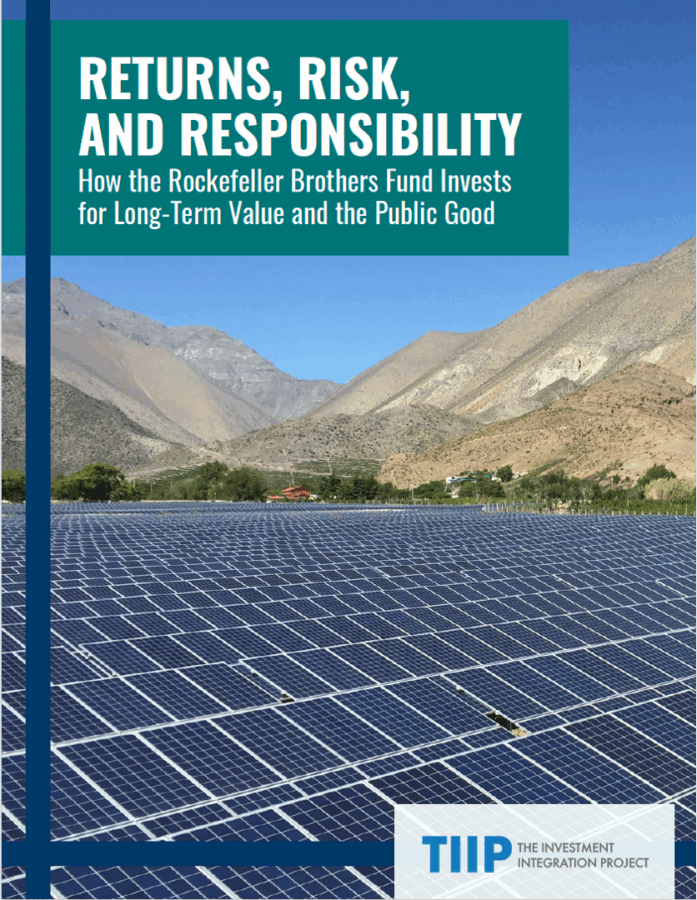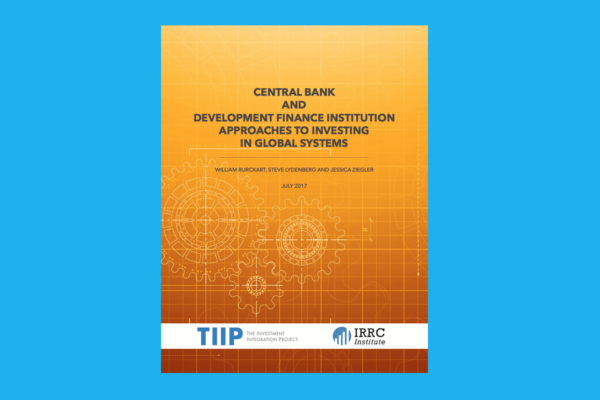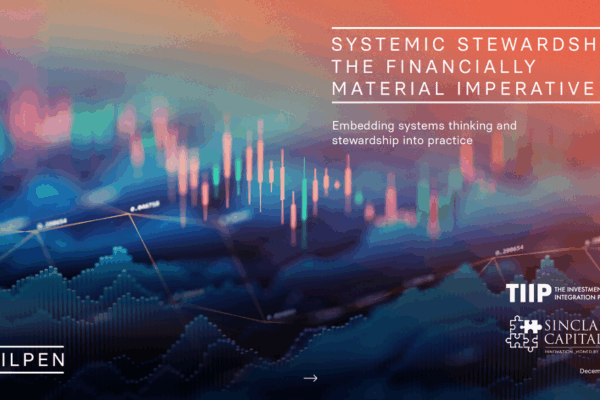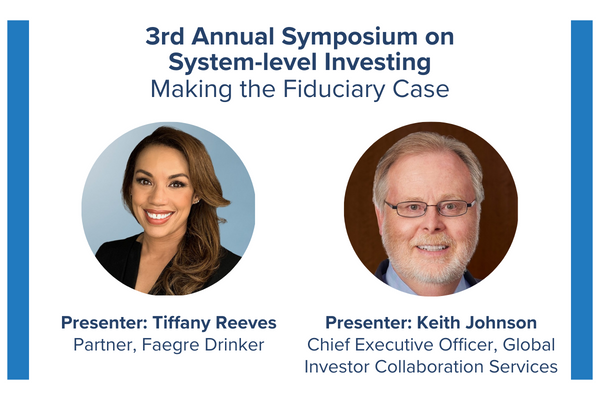New York, August, 2025 – Today, The Investment Integration Project (TIIP) released Returns, Risk, and Responsibility: How the Rockefeller Brothers Fund Invests for Long-Term Value and the Public Good, a landmark case study examining how the Rockefeller Brothers Fund (RBF) aligned its $1.3 billion endowment with its mission following its 2014 decision to divest from fossil fuels.
Commissioned by the RBF, the report offers a transparent, data-rich example of how one institution is navigating a world being reshaped by climate change, inequality, and geopolitical fragmentation. It demonstrates how responding to systemic risks has enabled the RBF to reaffirm its fiduciary duty, advance its mission for social change, and achieve superior financial results.
“Our experience over the last decade confirms that mission-aligned investing isn’t a tradeoff—it’s a strategy for long-term value creation, financial resilience, and multiplying our impact,” said Stephen Heintz, RBF president and CEO. “This report shows how institutional investors can simultaneously grow their assets and contribute to tangible, systemic advances.”
The RBF’s mission-aligned investing journey has been guided by an evolving “360-degree approach,” which synchronizes capital allocation, collaboration and convening power, and transparency to align its investments with its mission and advance the field more broadly.
“Our goal was always to combat the narrative that you have to be willing to lose money to do good,” said Geraldine Watson, executive vice president for finance, operations, and Pocantico at the RBF. “We felt that proving otherwise was one important way we could leverage our modest financial assets for maximum impact.”
Leveraging its multi-pronged approach, the RBF’s portfolio has generated an annual return of 7.76%—outperforming the benchmark by over 100 basis points per year with 27% less risk. With a meaningful time period of 10 years as its track record, the endowment provides powerful evidence that investments addressing environmental and social challenges can yield market-rate financial returns. System-level investing is not only possible, but necessary.
“The ability to see and respond to systemic risk is now the baseline context for investing—beyond ESG or impact factors,” said William Burckart, CEO of TIIP. “This report shows how a disciplined, transparent, and mission-aligned approach can advance justice and resilience without compromising fiduciary duty. In fact, it strengthens it.”
The report also details the RBF’s field-level contributions. In addition to evidencing the economic case for mission-aligned investing, the RBF and Cerity Partners OCIO have reinvented the client-manager relationship, partnering to develop, test, and share new frameworks and tools. Additionally, through its own participation as well as its grantmaking, the RBF supports industry coalitions and field building organizations that are setting new norms of investor best practice.
“At a time when fiduciary duty is too often misused as a shield for inaction, the RBF has leaned in,” said Monique Aiken, TIIP’s Managing Director, “This report is a call to lead with clarity, courage, and commitment to systems thinking.”
Key insights include:
• 7.76% annualized return over a 10-year period
• 99.7% fossil fuel-free portfolio
• 22.8% of endowment in impact investments
• 25.5% investment manager equity ownership by women and/or people of color
“The RBF has approached its mission-aligned investing journey with a learning mindset, recognizing that progress can be more valuable than perfection,” added Melissa Eng, a co-author of the report. “Its story is an honest one, and it shows how powerful transparency and collaboration can be in accelerating field-level and system-level progress.”
This report is part of TIIP’s new Total Portfolio Review (TPR) series, which examines how capital, governance, and influence can be aligned with long-term, system-level goals.
Read the report here.
About The Investment Integration Project (TIIP)
The Investment Integration Project (TIIP) is a boutique consulting firm that helps institutional investors 1) understand how portfolio performance is intertwined with the health of environmental, social, and financial systems; 2) shape the structures and norms influencing those systems; and 3) embed systems-aware decision-making across all strategies and operations. Established in 2015 by Steve Lydenberg and William Burckart—who coined the term system-level investing—TIIP’s pioneering thought leadership has enabled the alignment of investment practices with the long-term health of the systems underpinning value creation. At the center of TIIP’s work is SAIL (Systems Aware Investing Launchpad), an enterprise management and data platform that enables investors to integrate system-level investing across strategy, implementation, and governance. TIIP also offers customized services—Total Portfolio Activation, Total Portfolio Implementation, and Total Portfolio Review—to help clients benchmark progress, enhance portfolio design and stewardship, and apply system-level thinking in practice.
For more information, visit https://www.tiiproject.com.




